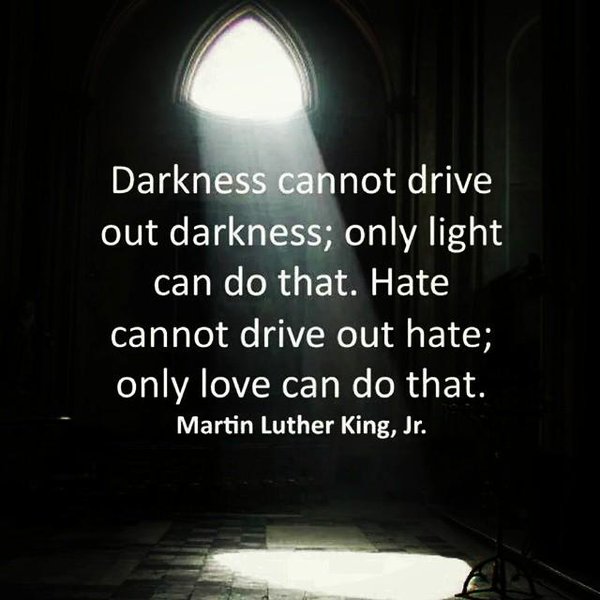My heart has been heavy lately.I have been feeling a deep heaviness for the trouble around us:
-the hateful killings that took place on Sunday in Orlando
-the cases of sexual assault where justice seems allusive
-the confusion around what it means to welcome and care for refugees and newcomers
-the profound sadness that seems to have entrapped some First Nation communities
-the silence or confused response of many Christians and churches
I’ve been trying to work through what I, what we, are supposed to do with such heaviness and trouble. I don’t know about you, but I find it especially hard when it seems so overwhelming and confusing, it is easy to get stuck in doing nothing, saying nothing. Here’s how I’m working it through. By the way, I also think this same process and advice can be used in helping youth and kids work through these tragedies they are hearing about in the news and from people around them.
1. Permission to scream – As this heaviness has been building, one day this week, I recognized I just had to scream. I just had to say it out loud – this is sad, this is not right, this is awful. Name it. Call what is unjust, unjust. Call wrong, wrong. Don’t be afraid to say 49 people were killed and many more wounded on Sunday and that is deeply wrong. One of the things I appreciate about the Psalms, a book of poetry in the Bible, is it is a record of people screaming at God. It is people’s unfiltered sadness, anger and confusion poured out to God. And they are not reprimanded for it, not at all, instead we celebrate the Psalms and the range of human emotions expressed to God. To borrow Eugene Peterson’s phrase, we need to learn to “cuss without cussing”, pouring out our screams to God. Rather than getting angry with others or letting my frustration come out at work, I’m learning to bring my unfiltered thoughts and emotions to God. What makes you want to scream? Have you told God?
2. Feel – I’ve been reflecting this week on the question “Who is my neighbour?” The clearest answer I can come up with is “The one who needs mercy.” Hmmm…I can think of a huge list of people that need mercy. And “When am I being neighbourly?”, the answer “When I show compassion and mercy.” One day a man asks Jesus a very religious question “How do I inherit eternal life?” In other words – “Who is out and who is in, and am I in?” This man wants to justify himself – he wants the lines to be clear and the fences to be high. I can think of some people and groups who have responded that way in the last week. Jesus answers with a very non-religious answer, with an extremely practical answer, the story of the good Samaritan – a person who felt compassion for another and acted. The key phrase is “he felt compassion.” No qualifiers about the person who is in trouble matter. In fact, we find out the good Samaritan was considered an arch enemy, so it doesn’t matter if the person is your arch enemy…you show mercy. The essential point is – he felt compassion and acted. Exercise your compassion muscles. Feel compassion for people and their stories. If you need to understand more of their story and the injustice they face, in order to feel compassion, take the time to hear their stories. All we hear in the news and watch on Netflix can numb us from the emotion, the real people, the real stories, the real feelings behind any event. Allow yourself to feel compassion and be moved by compassion. What are the emotions, the stories behind what is happening?
3. Act out God’s heart of compassion – there is a profound moment that has stuck with me from one of the most tragic seasons in my life. It was a season when it truly felt like evil was winning all around me. In our little community we were surrounded by fresh stories of tragedies – teen suicide, teens in a tragic car accident, stories of sexual abuse, and stories of corruption of those who were supposed to help. One morning, while on a youth retreat, I woke up super early. I was scheduled to speak that morning to the youth and I told the Lord “I can’t do it. I won’t do it. I got nothing here. Evil is winning.” I followed my own advice above – I screamed at the Lord, I deeply felt the hurt that was being caused to people, to families, and to a community. Just when I thought God would give me encouragement and a hug from heaven, I very strongly sensed the Lord saying “Renée, I’ve got the victory here, now act like it.” It changed my whole perspective around. I’d be acting like evil was winning. The truth is, evil does not win. Christ wins – love wins, compassion wins, forgiveness wins, justice wins. So, I started acting like Christ’s victory was real (because it is). I acted out of Christ’s compassion, love, healing…even though it might look like another way is winning. The first thing I did was to start to cook an over-the-top, lavish breakfast for the youth, to start to show radical kindness. We must tangibly show the alternative to the way of hate and division by tangibly showing the way of kindness and love. The best thing you can do in the face of the tragic events happening in our world – act out God’s heart for compassion and justice now. In the midst of the tragic events of Sunday we are also hearing stories of people who acted on compassion – Chick-fil-A opening on Sunday to provide meals, people rushing into danger to help others, people opening their homes and churches for people to grieve, people lining up to give blood. How could you tangibly show God’s radical kindness, mercy and love?
4. It is not our role to condemn the world. Love your neighbour – Christians, you are not the conscience of the world, of your neighbours. Your role is not to point fingers, it is not to condemn. Jesus reserved the strongest words about hell, about judgment for those who claimed they were on the “inside” of religion and thought they had it all figured out. To those considered “outside” he spoke of heaven, the Kingdom and went out of His way to spend time with these people considered outsiders. We seem to have gotten it backwards – we point fingers at those “outside” and turn a blind-eye to those “inside”. There is not an “us” and “them.” For God so loved the world, all of the world… God shows mercy. “For God did not send his Son into the world to condemn the world, but to save the world through him.” (John 3:17) God’s agenda isn’t condemnation, it is redemption, it is offering people a place in His family through what He has done. It is God’s Spirit that convicts not your pointing finger. I came to Christ, not because people pointed out all the ways my life was falling short of God’s best ways, but because people loved me well and displayed to me God’s radical, deep love. No one had to point out to me my sin, God pointed that out to me, and continues to do so, as I need to deal with things in my heart and life. We cannot hold non-Christians to Christian standards and we shouldn’t try to in the least. What if Christians, what if churches, loved people, loved their neighbours radically well? Who is the neighbour? – the one who shows mercy. Would your neighbours miss you or your church if you moved?Where could people point to your life, your church and say “WOW! That’s mercy!”?
How will you respond personally to these steps in your life?
How can you lead your church/group through these steps?
Find ways for you, and your church to scream at injustice, feel other’s stories, act in-line with God’s Kingdom and love your neighbour.
Here is a related previous post I wrote after the Paris attacks, in it I consider the “weapons” we have for peacemaking in this world: https://oneneighbourhood.org/2015/11/19/power-of-flowers-and-candles/
-Renée
@r_embree #1neighbourhood



I love #1! My daughter attended the Halifax vigil and was the most impacted by the “moment of screaming” that followed the moment of silence! I have felt numb and guilty and sad and frustrated this week but I think the screaming releases us to have all those emotions without so much self-judgement that we talk ourselves out of them! We have looked in the mirror and now we cannot walk away forgetting what we look like. May God show us what to do and may we faithfully do it.